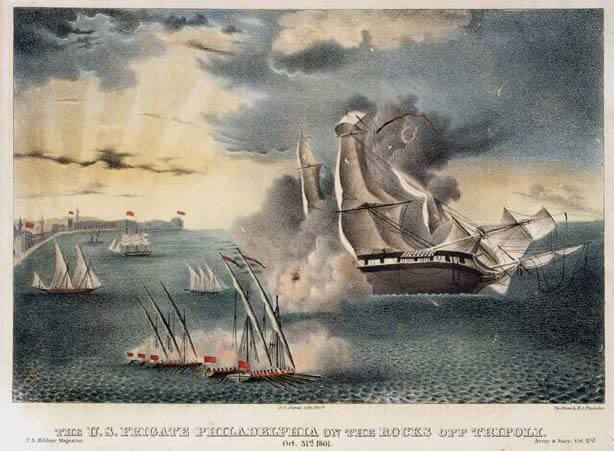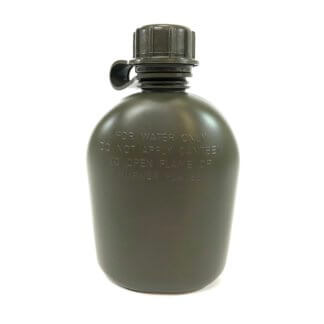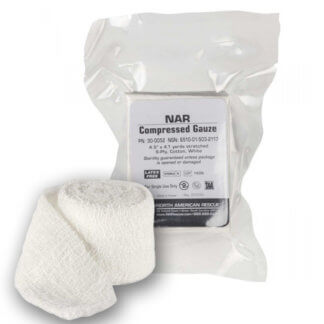
US Military History Throughout The Years
Short bits of history you know and some you may not!
- Battle of Kettle Creek: Sunday, February 14, 1779 – In a four hour battle a Patriot force defects an American Loyalist force at Kettle Creek, Ga, during the Revolutionary War. The Loyalists had recently moved into the area on an extended patrol following the British capture of Augusta, Ga, and set up camp near the creek. The Loyalist force numbered over 600 as they set up camp and rested after skirmishing with Patriot forces for several days. The Patriots located the Loyalist force and split their forces up into 3 columns. The Patriot force was outnumbered as they began their surprise attack, with only around 350 men attacking. The sudden attack by the Patriot force though caught the Loyalist force unawares and with no time to prepare to defend themselves. As the three columns of Patriot attackers moved across the swampy ground the Loyalist commander was killed in battle and soon after the Loyalist force retreated, even though they greatly outnumbered their attackers and commanded higher ground against their advancing attackers. The Patriot force would only suffer around 30 killed or wounded while the Loyalist force would lose some 200 men and was effectively destroyed during their retreat. After the battle a handful of the Loyalists that were captured would be tried for treason, as they were Americans and were fighting for the British, with several hanged after being convicted for treason. The commanders of both forces knew each other prior to the war, with the Loyalist commander requesting that the Patriot commander deliver the news of his death to his wife along with a brooch, which he would eventually do.
- Most Daring Act of the Age: Thursday, February 16, 1804 – US Navy Lieutenant Stephen Decatur leads what would be described as the “most daring act of the age” during the First Barbary War. Months before the USS Philadelphia ran around near the harbor in Tripoli and was captured by Tripolitan forces. Fearing the enemy would use the ship as a base to improve their inferior naval ships, Decatur would lead a daring raid to either regain or destroy the USS Philadelphia. With 80 volunteers he sailed into the harbor aboard the USS Intrepid, disguised as a common merchant ship. The Sailors and Marines that were to board the ship were ordered to avoid the use of any firearms unless absolutely necessary in order to maintain the secrecy of the mission. Decatur and 60 men would come along side of the USS Philadelphia and board her, quickly storming and overwhelming the small force holding the ship. The raiding force would only suffer one minor wounded and they would kill at least 20 of the enemy Tripolitan crew, in only 10 minutes time. After regaining the ship Decatur would find the USS Philadelphia to badly damaged to be sailed out of port and would set the ship on fire. As the raiding party escaped the ships gun powder stores and loaded cannons would explode, helping to cover the daring escape of Decatur and his men. Upon hearing of the event British Vice Admiral Lord Horatio Nelson would be the one to call the mission the “most daring act of the age” while the Pope Pius VII would declare the young USA had done more in one night to fight the “anti-Christian barbarians on the African coast” than Europeans had done in a long period of time.
- A French Salute: Saturday, February 14, 1778 – The USS Ranger, under command by John Paul Jones, arrives in France. The USS Ranger was flying for the first time, to a foreign port, the recently adopted Stars and Stripes. This marks the first time the US flag was recognized by a foreign vessel, after a French Admiral rendered a 9 gun salute to the USS Ranger. John Paul Jones is often referred to the Father of the American Navy.
This week’s featured products.
Best-Selling Military Gear
-

North American Rescue GEN 7 CAT Tourniquet
$29.99 Select options -

USGI M249 SAW Ammo Box, 200 Round
$11.99 – $16.99 Select options -

Eagle Industries Double M4 Mag Pouch
$3.99 Select options -

USGI Military Poncho Liner, Woobie Blanket
$19.99 – $49.99 Select options -

USGI 6 Magazine Bandoleer
$5.49 – $21.99 Select options -

USGI 1 Quart Canteen
$5.49 Select options -

North American Rescue Compressed Gauze
$4.99 Select options -

North American Rescue Survival Blanket
$1.59 Select options








